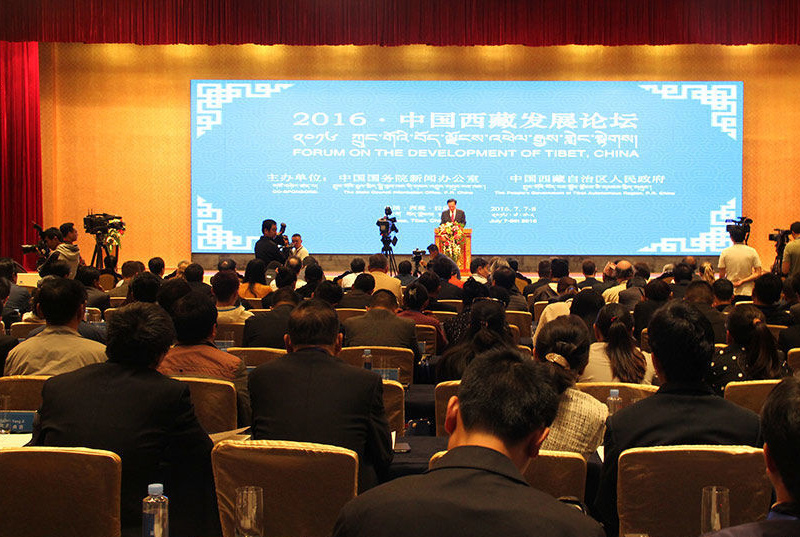Washington-based advocacy group International Campaign for Tibet (ICT) has questioned the integrity of a recent Tibet Development Forum in Lhasa which sought to invoke international support for the Chinese government’s ‘Lhasa Consensus’. The two day forum, held on July7-8, was organised by China’s State Council Information Office (SCIO) and was attended by more than 130 representatives from over 30 countries, including officials, researchers and journalists.
However, critics of China’s policies in Tibet were barred from attending, including German politician Markus Rudolph and Michael Brand, Chairman of the German Parliament or Bundestag’s Human Rights Committee.
The forum, headed by China’s Liu Qibao who is a member of the Politburo of the Communist Party of China and head of the Propaganda Department, discussed five themes, including poverty alleviation in Tibet and green development. According to the China Daily, the forum concluded with “participants reaching a consensus on the autonomous region’s development [and] cultural and environmental protection”.
Yet the ICT countered that “the consensus produced last week used a smokescreen of opaque terminology to attract the backing of foreign delegates and convince them that China’s policies, which are having a devastating impact on Tibet’s fragile environment, are aimed at the conversation of the plateau.” This statement is endorsed by climate change research which has shown Tibet to be warming nearly three times as fast as the rest of the world.
Pointing to specific examples, ICT allege that China has misleadingly described large scale dam-building as “water conservation” and displacement of nomads from grasslands as “environmental protection”. “It is astonishing that foreign individuals representing respectable institutions would endorse Beijing’s propaganda, while hundreds of Tibetan political prisoners are still in jail for expression their views” said ICT President Matteo Mecacci.
Eleanor Byrne-Rosengren, director of the London-based non government organisationFree Tibet also commented, saying that “the reality of economic development in Tibet is that the majority of Tibetans are marginalised spectators as Chinese migrants and businesses harvest the benefits of Beijing’s policies.”
Participants in the forum were also given guided tours of key areas in Lhasa and Lhoka province. This move was decried by Mecacci, who argued that participating in “Potemkin tours” does not contribute to the credibility of the forum participants.





 Print
Print Email
Email